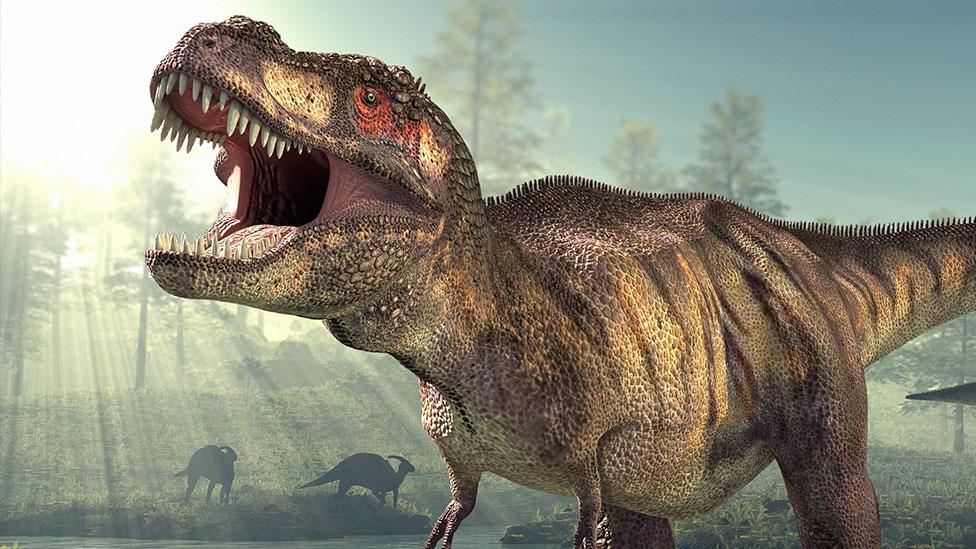T. rex: New research finds dinosaur wasn't as clever as we thought
- Published
- comments

Don't ask a T. rex to do your times tables for you
Scientists have found that the tyrannosaurus rex might not have been the super smart dinosaur that previous studies claimed.
It was originally thought that the T. rex had monkey-like intelligence due to having a high number of neurons in their brains.
Neurons are cells that send and receive messages, allowing us to think.
But new research published in The Anatomical Record found that, for dinosaurs, a high neuron count doesn't always lead to a 'smarter-saurus'.
Scientists used lots of methods to try and understand how smart a T. rex was, looking at their skeletons, bone structure, trace fossils and behaviour any living species related to the dinosaur
With its huge size and distinctive tiny arms, the T. rex is one of the most well-known dinosaurs to have lived on our planet, and scientists are still learning lots about them.
Hady George, a PhD student at the University of Bristol who worked on the project, says: "A previous research study suggested the T. rex was as smart as a baboon. Our new work suggests they were probably more similar to reptiles such as crocodiles."
The new paper also suggests that the actual size of a T. rex brain may have been overestimated in the past.
But Hady says that there's plenty of evidence to prove that the dinosaurs still had their wits about them.
WATCH: Emma-Louise learns more about the first dinosaur to be officially named
"Dinosaurs had all sorts of fascinating displays including awesome crests and beautiful feathers," Hady says. "They wouldn't have had these displays if they weren't communicating with each other, and that shows they must have been intelligent."
Whilst it's impossible to list all the things that a T. rex could have been capable of, Hady's colleague and project leader Dr Kai Caspar adds that it would have been able to find places to nest and hunt for prey.
Although, Dr Kai says: "What it probably could not do was to use tools to help it with any of that, but given its lifestyle, there was no need for that anyway."
- Published4 April 2023
- Published22 April
- Published14 February
